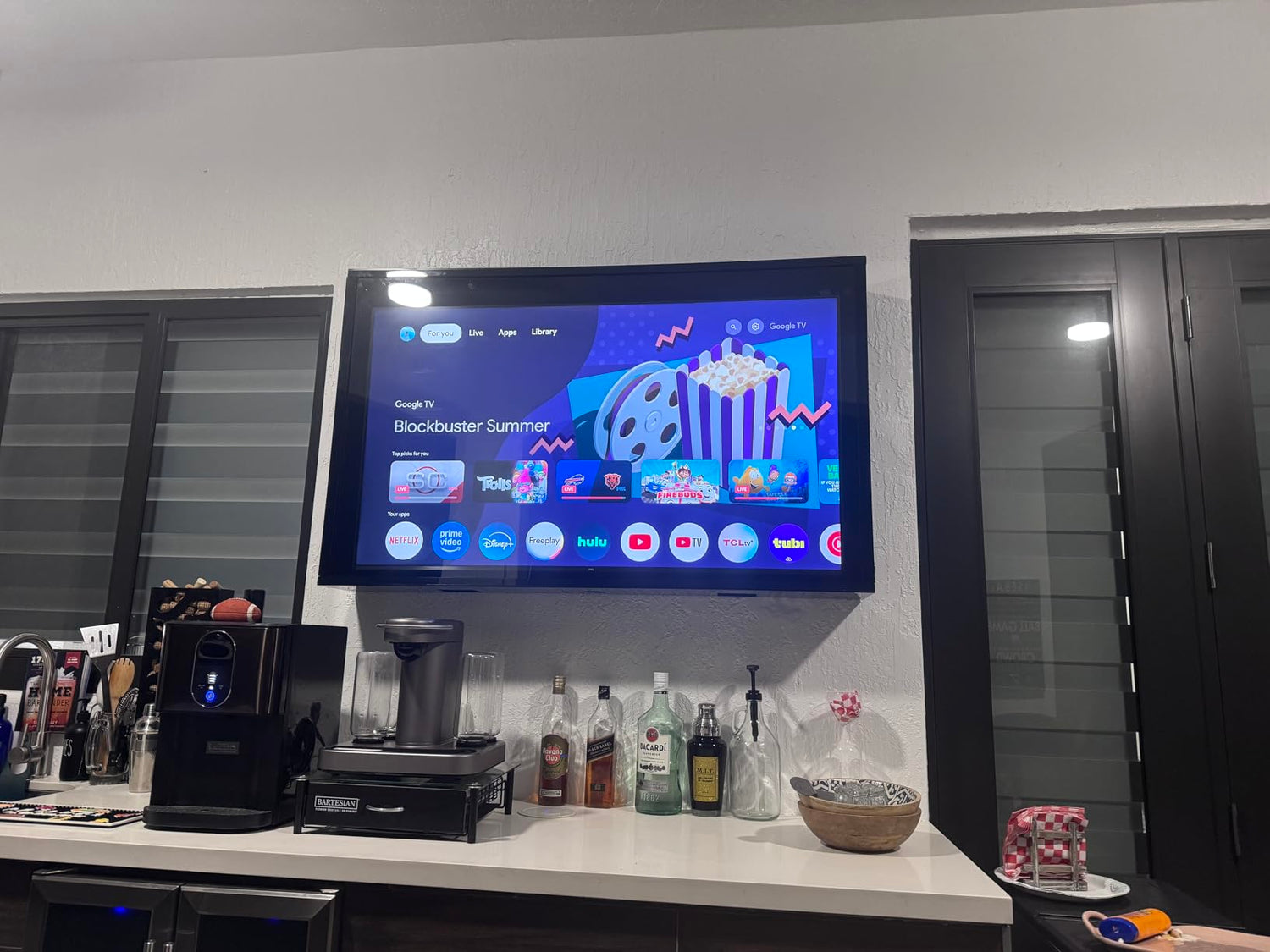
The Clear Choice? An Honest Look at Acrylic Panels on Your Outdoor TV Enclosure
Outdoor TVs are the ultimate dream for backyard entertainment, but the reality is harsh: your TV investment is constantly battling rain, sun, dirt, and disaster.
Most people use a protective enclosure to keep their standard indoor TV safe outside. But while you focus on the sturdy shell, the front panel—the "window" you look through—is the most critical line of defense. If that fails, your whole setup is toast.
If your outdoor TV enclosure uses an Acrylic panel (often called Plexiglass), you've chosen a very popular option. Here’s an honest breakdown of whether this panel truly solves your biggest pain points.

You want to see the football game, not a murky reflection. This is where Acrylic shines.
The Verdict: If visual quality is your top priority, an acrylic panel delivers a fantastic, clear window to your screen for years to come.
The Weather is Brutal. Will My Panel Crack or Break?
Weather events—from high winds and hail to kids throwing pool toys—can instantly destroy a fragile screen. This is a common worry for outdoor owners.
It’s 100°F Outside. Will My TV Cook Itself?
Electronics and extreme heat do not mix. An enclosed TV is essentially an oven waiting to happen, and the front panel contributes to that heat.
Essential Tip: You Must Clean Acrylic the Right Way
This is the biggest mistake acrylic owners make, and it causes unnecessary "pain."
Acrylic is softer than glass and scratches more easily. Do not use paper towels or Windex (ammonia-based cleaners). These will permanently cloud and scratch the surface.
How to Clean Your Acrylic Panel:
-
Dust First: Use a soft, clean microfiber cloth to gently wipe away loose dust and dirt.
-
Clean: Use warm water with a drop of mild dish soap, or a dedicated acrylic cleaner.
-
Dry: Pat dry with a clean, soft cloth.
Final Takeaway
For the average homeowner looking to protect a TV on a patio, under a pergola, or next to a pool, an acrylic-paneled enclosure is a superb choice. It offers fantastic clarity and UV protection at a great value.
Just remember the trade-offs: prioritize proper shading and use the right cleaning supplies, and your acrylic panel will keep your outdoor screen crystal clear and safe for years of backyard viewing pleasure.
Are you more concerned about accidental impacts or maintaining a perfect picture? Let us know what matters most to your outdoor setup!
